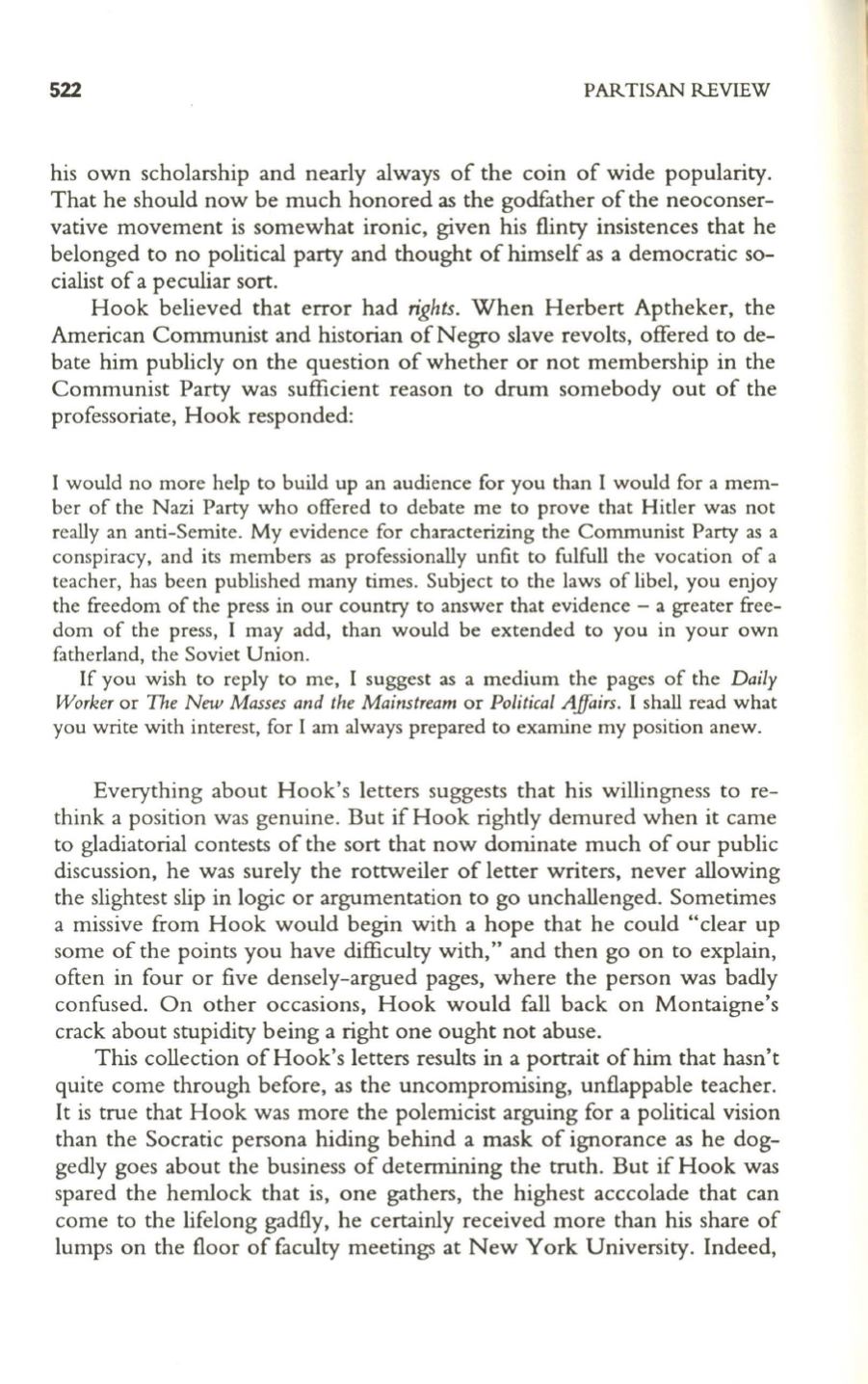
522
PARTISAN REVIEW
his own scholarship and nearly always of the coin of wide popularity.
That he should now be much honored as the godfather of the neoconser–
vative movement is somewhat ironic, given his flinty insistences that he
belonged to no political party and thought of himself as a democratic so–
cialist of a peculiar sort.
Hook believed that error had
rights.
When Herbert Aptheker, the
American Communist and historian of Negro slave revolts, offered to de–
bate him publicly on the question of whether or not membership in the
Communist Party was sufficient reason to drum somebody out of the
professoriate, Hook responded:
I would no more help to build up an audience for you than I would for a mem–
ber of the Nazi Party who offered to debate me to prove that Hitler was not
really an anti-Semite. My evidence for characterizing the Communist Party as a
conspiracy, and its members as professionally unfit to fulfull the vocation of a
teacher, has been published many times. Subject to the laws of libel, you enjoy
the freedom of the press in our country to answer that evidence - a greater free–
dom of the press, I may add, than would be extended to you in your own
fatherland, the Soviet Union.
If you wish to reply to me, I suggest as a medium the pages of the
Daily
Worker
or
The New Masses and the Mainstream
or
Political Affairs.
I shall read what
you write with interest, for I am always prepared to examine my position anew.
Everything about Hook's letters suggests that his willingness to re–
think a position was genuine. But if Hook rightly demured when it came
to gladiatorial contests of the sort that now dominate much of our public
discussion, he was surely the rottweiler of letter writers, never allowing
the slightest slip in logic or argumentation to go unchallenged. Sometimes
a missive from Hook would begin with a hope that he could "clear up
some of the points you have difficulty with," and then go on to explain,
often in four or five densely-argued pages, where the person was badly
confused. On other occasions, Hook would fall back on Montaigne's
crack about stupidity being a right one ought not abuse.
This collection of Hook's letters results in a portrait of him that hasn't
quite come through before, as the uncompromising, unflappable teacher.
It
is true that Hook was more the polemicist arguing for a political vision
than the Socratic persona hiding behind a mask of ignorance as he dog–
gedly goes about the business of determining the truth. But if Hook was
spared the hemlock that is, one gathers, the highest acccolade that can
come to the lifelong gadfly, he certainly received more than his share of
lumps on the floor of faculty meetings at New York University. Indeed,


